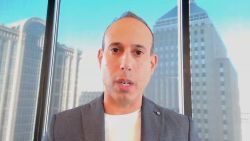When Dave Weinstein worked in a government job a few years back, he took an extreme measure to keep his data secure from hackers. He and his co-workers physically removed thehard drives from their computers and locked them up in a safe at the end of the day.
While that level of security isn’t always necessary, the possibility of having your credit card stolen or misued, suffering from identity theft or getting hacked is on the rise. And people like Weinstein are finding creative ways to protect their passwords and devices.
Facebook CEO Mark Zuckerberg famously covers up his laptop’s webcam with a sticker, a practice that is increasingly common, and most people now know not to use the same password for all their accounts. Some security experts aretaking personal protection even further.
Now the vice president of threat research at Claroty, an industrial cybersecurity company, Weinstein usesat least two different identity-theft protection subscriptions, such as Experian, Equifax or Lifelock, to ensure that his information isn’t being compromised or sold online.
These services monitor financial data such as credit card information, loan applications and bank accounts to ensure that information isn’t being compromised or sold online.
Weinstein’s security practices are far from rare. Wendy Nather, director of advisory chief information security officers at Duo Security, has a clever trick to thwart would-be hacks.
“I use a different credit card to make automated [bill] paymentsonlinethan I do for purchases on the street,” Nather said.
Nather keeps things separate so thatif hereveryday credit card is breached, she doesn’t have to change the card for each of her automated payments. It also minimizes the potential damage a hacker can do because it’s not tied to any important online accounts.
Others focus on compartmentalizing areas of their lives such as using different physical computers for work andpersonal use, or create separate digitalaccounts for working, shopping and banking.
Nather said she’s even known people who will only do certain tasks on paper and keep it locked in a safe.
Kevin Kosh, a partner at CHEN PR which represents tech companies, uses a Google voice number – not his mobile number – to receive two-factor authentication texts. Two-factor authentication requires using a one-time code to access accounts, in addition to a password.
His logic is that if you ever change your SIM card — like when you get a new phone or change carriers — there’s no connection to your sensitive information.
Nather and Weinstein are also big advocates ofkeeping mobile software up to date for bug fixes and security patches.
Weinstein said he’s known some people who completely eliminate email due to the high risk of phishing and malware.
Although that’s not a reasonable fix for most people, he noted one area in which people could adopt a more cautious approach is with home routers.
“Most people get them through their internet service provider and they don’t necessarily prioritize security,” Weinstein said. “Consider purchasing a home router as you would any other technology that you care about. It’s more than just giving you wireless access. Security needs to be part of the equation.”
These routers are easily hacked and can provide access to sensitive information because most people feel safe using computers on a protected network.
But Weinstein cautioned against taking every extreme security precaution, such as using personal servers for email.
“It’s the thing people do to be secure and then it ends up backfiring,” he said. “Unless you have a state-of-the-art facility and 24/7 operation center backing it, you can’t compare the level of security to something as commoditized as Gmail.”
Nather agrees, noting “if you’re sufficiently paranoid, you can never prove to yourself that you’re safe.”
She said there are some things that should be done off the bat, such as 2-factor authentication and loading passwords into a password manager. But “unless you know you’re at high-risk of being targeted, say a government official or high-placed executive, you’re probably not going to be.”





![This photo taken on August 4, 2020 shows Prince, a member of the hacking group Red Hacker Alliance who refused to give his real name, using his computer at their office in Dongguan, China's southern Guangdong province. - From a small, dingy office tucked away in an industrial city in southern China, one of China's last "volunteer hacker" groups maintains a final outpost in its patriotic hacking war. (Photo by NICOLAS ASFOURI / AFP) / TO GO WITH China-hacking-security,FOCUS by Laurie Chen / The erroneous mention[s] appearing in the metadata of this photo by NICOLAS ASFOURI has been modified in AFP systems in the following, we removed the HOLD HOLD HOLD in the main caption. Please immediately remove the erroneous mention[s] from all your online services and delete it (them) from your servers. If you have been authorized by AFP to distribute it (them) to third parties, please ensure that the same actions are carried out by them. Failure to promptly comply with these instructions will entail liability on your part for any continued or post notification usage. Therefore we thank you very much for all your attention and prompt action. We are sorry for the inconvenience this notification may cause and remain at your disposal for any further information you may require. (Photo by NICOLAS ASFOURI/AFP via Getty Images)](https://media.cnn.com/api/v1/images/stellar/prod/210621154549-hackers-keyboard.jpg?q=x_0,y_131,h_1419,w_2523,c_crop/w_250)





















